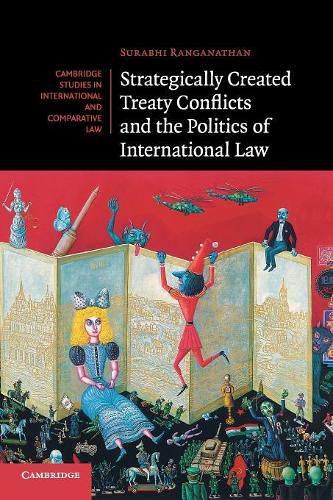Readings Newsletter
Become a Readings Member to make your shopping experience even easier.
Sign in or sign up for free!
You’re not far away from qualifying for FREE standard shipping within Australia
You’ve qualified for FREE standard shipping within Australia
The cart is loading…






Treaty conflicts are not merely the contingent or inadvertent by-products of the increasing juridification of international relations. In several instances, states have deliberately created treaty conflicts in order to catalyse changes in multilateral regimes. Surabhi Ranganathan uses such conflicts as context to explore the role of international law, in legal thought and practice. Her examinations of the International Law Commission’s work on treaties and of various scholars’ proposals on institutional action, offer a fresh view of ‘mainstream’ legal thought. They locate, in a variety of writings, a common faith in international legal discourse, built on liberal and constructivist assumptions. Ranganathan’s three rich studies of treaty conflict, relating to the areas of seabed mining, the International Criminal Court, and nuclear governance, furnish a textured account of the specific forms and practices that constitute such a legal discourse and permit a grounded understanding of the interactions that shape international law.
$9.00 standard shipping within Australia
FREE standard shipping within Australia for orders over $100.00
Express & International shipping calculated at checkout
Treaty conflicts are not merely the contingent or inadvertent by-products of the increasing juridification of international relations. In several instances, states have deliberately created treaty conflicts in order to catalyse changes in multilateral regimes. Surabhi Ranganathan uses such conflicts as context to explore the role of international law, in legal thought and practice. Her examinations of the International Law Commission’s work on treaties and of various scholars’ proposals on institutional action, offer a fresh view of ‘mainstream’ legal thought. They locate, in a variety of writings, a common faith in international legal discourse, built on liberal and constructivist assumptions. Ranganathan’s three rich studies of treaty conflict, relating to the areas of seabed mining, the International Criminal Court, and nuclear governance, furnish a textured account of the specific forms and practices that constitute such a legal discourse and permit a grounded understanding of the interactions that shape international law.